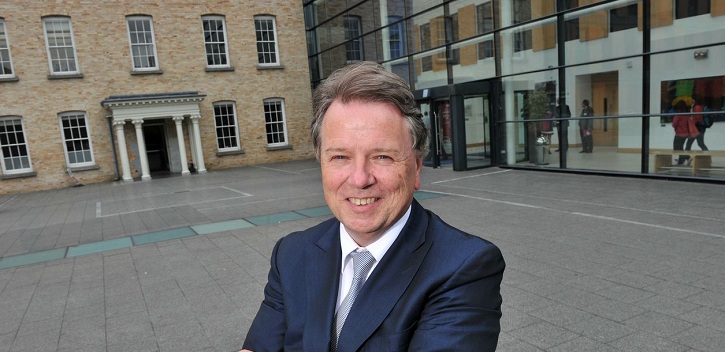2013 Press Releases
UCC professor wins essay competition

Announcements from science research centres are not expected to feature achievements in the arts and the humanities.
However, scientists at the Alimentary Pharmabiotic Centre (APC) in Cork have never felt restricted by artificial boundaries, and regard the arts and sciences as complementary ways of looking at the human experience and the world we live in. This month the online medical humanities journal Hektoen International publishes its grand prix winning essay entitled “Waiting” (http://www.hektoeninternational.org/). The winning essay from a total entry of over 150 submissions worldwide was written by Fergus Shanahan, Director of the APC. The essay draws on Shanahan’s experience as a clinician working with patients who struggle with life-long illness and disease and who are dependent on the health service. The work was inspired by exhibits featured in a recent art exhibition at Cork’s Glucksman Art Gallery entitled Living Loss: learning from illness in Art, which was co-sponsored by the APC.
Shanahan, like many scientists, embraces the connections between the sciences and the arts, and views the former as a way of thinking and the latter as a means of finding inspiration in the ordinary. He points out that while science tells us about the objective facts of disease, only the arts and humanities can tell us about illness - the personal experience of disease. Shanahan also points out that this trans-disciplinary approach to illness and disease mirrors the essence of the APC. The APC connects people from divergent backgrounds and expertise challenging them to work in teams focussing on the magical mysteries of the microbial world we live in and how it affects health and disease.
The APC, now in its second decade, recently celebrated the launch of its next phase of funding from Science Foundation Ireland. The research relates to the Irish economy, jobs and societal welfare, with partnerships which include companies from the food, pharmaceutical and diagnostic sectors. “Our approach to understanding important biologic questions continues to be comprehensive,” Shanahan says, “we have never restricted ourselves to a single strategy or viewpoint. This means bringing all traditional research disciplines together and thinking across traditional boundaries in both the sciences and the humanities.”
